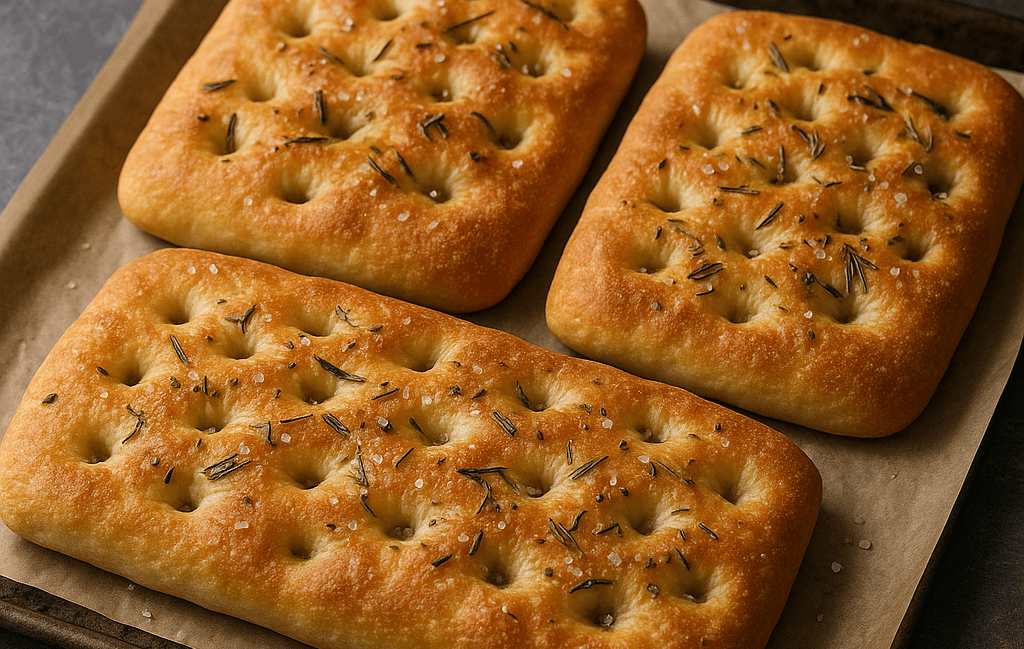The Focaccia of Righteous Hunger
Jean, a weary home-baker, discovers in focaccia a profound symbol of hungering for God's justice—a soul-deep craving that only divine love can satisfy.
BEATITUDES
Wandering Armenian
7/31/20255 min read


The Focaccia of Righteous Hunger
The olive oil slipped through Jean Baptista's fingers like liquid gold, each drop falling onto the pale canvas of focaccia dough with a soft plop that echoed in his too-quiet kitchen. His hands these same hands that once filled out asylum applications at 2 AM, that had held sobbing children who spoke no English, who had pounded on government office doors now trembled with something he could not name.
Was it fear? Grief? Or simply the weight of feeling utterly, devastatingly useless?
He pressed his fingertips into the yielding dough, creating small dimples that would soon hold pockets of herbs and oil. The motion should have been meditative, therapeutic even, but instead it felt like an accusation. Look what you have been reduced to, whispered the voice in his head. Playing with flour while the world burns.
The kitchen wrapped around him like a warm embrace he did not deserve rosemary releasing its piney fragrance, the oven preheating with gentle clicks and sighs, afternoon sunlight painting golden rectangles across his worn wooden counters. Six months ago, he would have killed for this peace. Now it felt like a prison of privilege, beautiful bars that kept him from the real world where real people suffered real consequences.
His counsellor’s words still rang in his ears: "Jean, you can't save everyone. You were heading for a complete breakdown." The refugee centre’s director had been kinder but equally firm: "Take the sabbatical. You'll burn out completely if you don't."
Burnout. As if his passion for justice were nothing more than a candle flame that could be snuffed out by exhaustion.
His Bible lay splayed open beside a dusting of flour; its margins crammed with his desperate scribbles from early morning wrestling sessions with God. He had been camping out in the Sermon on the Mount for weeks, searching for... what? Permission to feel this loss. A roadmap back to purpose?
His eyes found the verse that had been haunting him, the one that seemed to pulse with accusation every time he read it: "Blessed are those who hunger and thirst for righteousness, for they will be filled." (Matthew 5:6)
Hunger. The word hit him like a physical blow to the chest.
God, did he know hunger. He had witnessed it carved into the gaunt faces of asylum seekers who had walked hundreds of miles on empty stomachs. He had seen mothers divide single crackers among three children, pretending they were not hungry so their babies could eat. He had watched grown men weep over spoiled milk because it was the only protein they had seen in days.
But this hunger Jesus spoke of this righteous hunger it was eating him alive from the inside out. It was the 3 AM insomnia when he would lie awake thinking about Fatima, the Somali mother whose deportation appeal he'd been working on when he left. It was the way his chest constricted every time he scrolled past news articles about immigration raids, knowing he should be doing something, anything, instead of... this.
Jean's vision blurred as he scattered flaky sea salt across the dough's surface, each crystal catching the light like tiny diamonds. Or tears. His throat felt thick, swollen with months of swallowed words, suppressed sobs, anger turned inward until it became self-hatred.
What kind of person takes a break from fighting injustice? The thought tasted bitter, like over-steeped tea. What kind of follower of Jesus chooses comfort over the cross?
He pressed cherry tomatoes into the dough with more force than necessary, their tender skins giving way to his frustration. Each one nestled into its dimple like a drop of blood, a reminder of all the wounds he wasn't tending, all the battles he'd abandoned.
But as he watched the tomatoes settle into their olive oil beds, something shifted not in his circumstances, but in his understanding. The tomatoes weren't being destroyed by the bread; they were becoming part of something beautiful, their essence breeding into the surrounding dough, transforming both themselves and what held them.
Maybe the thought felt both dangerous and sacred, this ache wasn't evidence of his failure. It was proof that God's heart still beat within his chest, that his capacity for righteous anger hadn't been cauterized by exhaustion. The very fact that he couldn't settle into comfortable numbness while others suffered was itself a form of prayer, a wordless cry that reached heaven even when he couldn't find the words.
His hands stilled over the bread. Could it be? Could this restlessness, this holy dissatisfaction, this inability to ignore the world's pain could it all be sacred instead of shameful?
Jean slid the focaccia into the oven with trembling hands, and as the heat hit his face, something in his chest finally broke open. The tears came then, not the angry tears of frustration he'd been choking back for months, but something deeper. Grief, yes, but also relief. The relief of a man who'd been holding his breath underwater finally breaking the surface.
He leaned against the counter and wept for the children still in cages, for the mothers still separated from their babies, for his own tender heart that refused to grow callous even when callousness would be easier. He wept for the beautiful, terrible burden of caring too much in a world that often cared too little.
The kitchen timer's gentle chime called him back twenty-five minutes later, its cheerful insistence a small miracle of its own. Jean opened the oven door and gasped. The focaccia had transformed golden and glorious, the tomatoes burst and caramelized, their juices creating abstract patterns across the bread's surface like modern art painted in flavor.
The aroma hit him like a revelation: rosemary sharp and clean, olive oil rich and ancient, salt and sweetness and everything good in the world concentrated in one perfect moment. His mouth watered, and for the first time in months, he felt truly hungry not just for food, but for life itself.
He tore off a corner while it was still too hot to manage, the crust crackling like a small celebration. The first bite flooded his senses, herbs and oil and tomato singing together in perfect harmony, warmth spreading through his chest like liquid sunshine.
This, he thought, understanding flooding through him like dawn breaking, this is what Jesus meant.
The hungry for righteousness will be filled not because they will achieve perfect justice in this broken world, not because they will single-handedly heal every wound or right every wrong, but because God's own goodness would seep into every crack of their existence like fragrant oil into warm bread. The hunger itself was holy. The longing was a gift, not a curse.
Jean carefully tore off a generous portion and wrapped it in his grandmother's tea towel, the one with tiny blue flowers that had witnessed countless acts of love. Maria at the homeless advocacy centre would still be there, surviving on vending machine coffee and sheer determination. She would understand this bread, this metaphor, this beautiful ache they both carried like a sacred trust.
As he prepared to step into the cool evening air, Jean felt something he had not experienced in months: not the absence of longing, but peace within the longing. The righteous hunger would remain it was meant to. But now he understood it for what it truly was: evidence of a heart still soft enough to break for others, still brave enough to hope for change, still faithful enough to believe that every hungry soul including his own would one day be completely, abundantly satisfied.
The focaccia was meant to be broken and shared, just like the work of justice itself. And tomorrow, whether he was kneading dough or writing legal briefs, visiting detention centres, or tending his small garden of hope, he would hunger again righteously, beautifully, and with gratitude for the very longing that kept his heart alive, and his soul awake to the world's deep need for love.
After all, blessed are those who hunger and thirst for righteousness for they, and they alone, will be filled.

